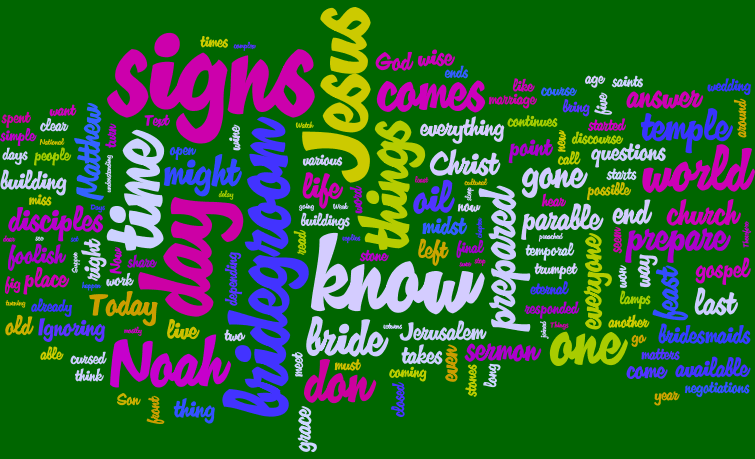Part of the job of a pastor is encouragement to live the Christian life. Part of the problem is that encouragement can take many forms, and you are not always sure which one is needed. Is the encouragement more about finding lost sheep and calling the straying back to faith? That is the encouragement to pursue holiness. In our day and age there is a lot more of this. Maybe that is the truth in every age. Most of us are always willing to cut ourselves some slack. And pretty soon all we have is slack. But then you occasionally run across the striving sick soul. Maybe in the Christmas season we can understand the perfectionist better. We all are trying to be a little better. We all want that perfect Christmas. And then nobody cares, or nobody recognizes it, or something small happens and mars that perfection. This is Luther in his life as a monk. There are still those rare Christians who are attempting to “be perfect as your father in heaven is perfect (Matthew 5:48).” And there are those who can be like the rich young man. “All these I have kept since I was a child. (Mark 10:20).” And their answer is more correct than we Lutherans might like to admit. After all Jesus looks at the man and loves him.
I know that not everyone appreciates sports examples, but a current one is just too perfect. The Florida State football team was perfect. They were pursuing perfection. But then in the game to get to 11-0 their star Quarterback goes out for the season with a gruesome leg injury. But they persevered. The back-up Quarterback stepped in and beat the instate rival Florida to get to 12-0. But in that game the backup got a concussion and was “placed in the protocol.” Going into the conference championship game they were down to a true freshman 3rd string quarterback. They did everything you’d want in such a situation. The defense picked up the slack holding a team that has been scoring 30 a game to 6. The freshmen helped by a career game from a running back got them 16 points. They finished the season 13-0. Perfect. A more gracious God might have said well done faithful servant and recognized their deservedness. They did everything correct from early in the season, enduring the hardships and finding ways.
It didn’t matter. The playoff committee cut them. The judged perfection was not enough.
What is the encouragement? It is ultimately not about your record. Yes, the law demands perfection. But there has only been one perfect person in the history of the world, and where did he end up? On a cross. Perfection is overrated. What isn’t overrated is that cross. More than perfection, God asks you to trust Him. Pick up your cross and follow. Even perfection is going to look like a loss. It is going to feel like a loss. And by the world’s standards will be. You will be outside the playoffs. But as the Apostle Paul would say, “everything I was I count as loss.” Because winning by the rules of the world is still losing. This world and its playoff committees are passing away. Only the things placed on that cross will stay. Only the righteousness which comes through faith in Christ attains the resurrection.






